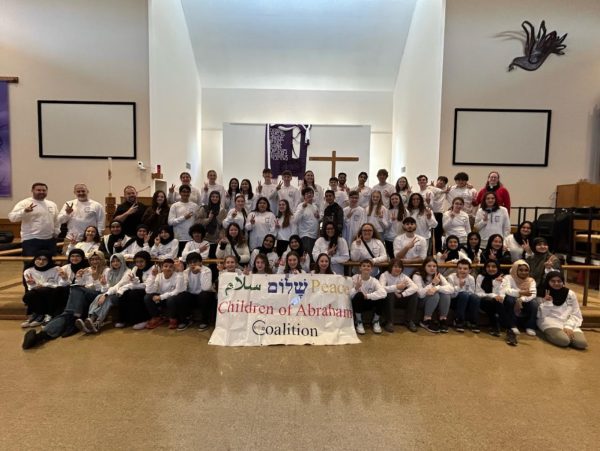Give up something for Lent, put on ashes to repent
Students celebrate Lent mass in school.
Everyone knows that one elderly person who wags his or her finger and insists that younger generations have lost their morals, and it isn’t hard to see why. Most teenagers are glued to their phones 24/7 looking at a polished version of society; meanwhile, they justify missing mass here and there and behave quite differently from how grandma and grandpa did in the glory days. Surprisingly, however, the Lenten commitments of students counter the notion that youngsters have no moral compasses.
In a poll observing 55 students, 42 responded that they would definitely give something up for Lent. The top sacrifices involved foods and beverages with sweets taking the number one spot and soda landing at number two. While not as numerous as the dietary sacrifices, many planned to cut screen time to focus more on school or relationships—Snapchat and Netflix being particular culprits.
“I feel like it [Snapchat] wastes a lot of my time,” said sophomore Jack Lynch. “It also distracts me from my faith life, and through Lent, hopefully I can get a little closer to God.”
Not everyone is as keen on giving up something for Lent though. Of the minority, some accredited their choice to differences in religious practices and in the ways they were raised. In recent years, though, many people have turned to changing or doing something rather than sacrificing.
“I am focusing on doing more for others and improving myself instead of giving up things,” said junior Michelle Cecchin.
Similarly, theology teacher Mrs. Anne Perez is pledging to read the children’s Bible with her daughter each night.
“It helps us work on our relationship with each other and God,” said Perez. “It gives us the opportunity to discuss Bible stories that don’t come up in everyday conversation.”
Another potential point of contention is Lenten fasting, including not consuming meat on Fridays. Despite being athletes and everyday meat-eaters, 45 of the 55 polled students planned to give up meat on Fridays, which an even greater amount than those who agreed to give up something else. By far, a majority of students are grandfathered into this tradition, yet others purposefully abstain for the religious connection.
“My family participates in this sacrifice, and it’s a good practice of faith so that we too can know a small struggle, just as Jesus suffered a large struggle,” said senior Madi Walker.
Those who will eat meat on Fridays attributed their choices to never practicing the tradition before, needing meat in their diets, and not finding enough significance in the act.
In addition to the practices encouraged by the Church and their families, many students are defining their own Lenten commitments: going to Mass and other religious services more frequently, cutting the use of profanities, changing diets and workout routines to achieve better health, giving more compliments, and focusing on relationships.
While there is clearly no single right way to partake in Lent, students obviously are more than willing to make small and large commitments, and not just because their families told them too. The practices are ways for students to connect to their faith lives and focus on improving themselves in a variety of ways. While these Lenten commitments may not translate to a completely moral world, they certainly demonstrate that students have the morals older generations often deem lacking.
Your donation will support the student journalists of Saint Viator High School. Your contribution will allow us to purchase equipment and cover our annual website hosting costs.











